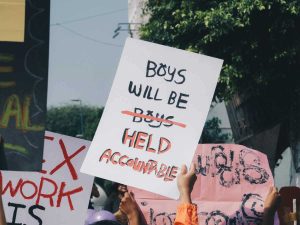The Spycops scandal saw secretive police units use undercover officers for decades to infiltrate activist groups. The Canary believes this is a massive issue that everyone needs to be more aware of. We will be releasing a set of related articles and interviews in the run-up to part 2 of Tranche 2 of the Undercover Policing Inquiry, which will begin on 30 September. Tom Fowler goes to every hearing of the inquiry. In his own words, he’s been there “for every second of it”. But as he told the Canary:
We’ve got no real faith in this judicial process… the point of following it so closely is the disclosures that… are coming out of it.
For Fowler, the state’s overt and covert policing of progressive groups in the country from the 1960s onwards had a fundamental impact on the nature of British society.
Spycops: denying power to progressives, preventing positive change
Tom Fowler explained that Spycops collected “really useless” information about progressives because it was “very powerful information to turn somebody into an informant”. And he summed up why the state was so intent on following activists so closely, saying:
Why are they spying on so many people and creating these huge databases, these huge lists about everybody on the left, everybody involved in progressive politics since 1968? It’s so that they can deny these people from ever working in positions of influence in British society, whether that’s the civil service, or the BBC, or whatever else. And I think that became very, very clear during these hearings.
He also spoke about the significant transformation of society as a result:
When you kind of combine that with the fact that they weren’t doing this to the far right, is it any wonder that we now live in an incredibly right-wing country, with the huge influence the far right has over the discourse, setting the agenda of British politics day in, day out? The BBC is so incredibly biased towards the likes of Farage and so forth, whereas… there’s such little legacy of the huge history of left-wing politics that Britain has that has any influence on mainstream society. We have so few long-term left-wing institutions, because they’re undermined and destroyed…
He added:
Dividing British society more than it would have been otherwise. And it goes bigger than that. What could Britain have been like if we hadn’t had all this? … Their first target was the anti-Vietnam-War movement. Britain didn’t send troops into Vietnam partially because of that movement. British support for apartheid went on way longer than it should’ve given the level of opposition that existed in this country, because of the way in which they destablised the anti-apartheid movement. The rise of the far right in the 1970s – the way they allowed it to flourish whilst suppressing anti-fascism. And that’s before you get onto the likes of the miners’ strike … It’s only recently that the environmental movement has reached the levels of support that existed for it in the late 80s. … They’ve fundamentally changed Britain by the way that they’ve done these things. Maybe they’ve fundamentally fucked our chances of saving the planet from runaway climate change because of this stuff.
‘Preserving the parasitic, aristocratic section of society’
Tom Fowler asserted that the state tries to justify Spycops on the grounds of preventing ‘public disorder’ and ‘subversion’. But as he said:
They literally considered working-class political representation and mobilisation as being like a form of criminality
As he pointed out, though:
In the minds of people who want to preserve the parasitic, aristocratic section of society that bleeds the rest of us dry and is destroying the planet – if you wanna defend that, then you need things like this.
In short, he added:
Anybody who wants to make this world a better place has to be revolutionary
Learning from the past and continuing to mobilise
While we don’t know the exact details of the state’s current efforts to undermine left-wing movements with Spycops, Tom Fowler said, we can assume that “it’s about building up those vetting lists. It’s about finding those connections”. And he insisted:
I think failing to learn the lessons of what we’ve learned from this is a dereliction of duty for any activist who’s seriously looking to do any social change.
The “big lesson”, he stressed, is that:
the state doesn’t wear kid gloves when it comes to dissent. You need to take it seriously.
He highlighted in particular the need to be careful with our personal information. And another piece of advice he gave was:
Society is not a debating chamber. It’s a power struggle. You don’t actually get anywhere by formulating the right collection of words in order to defeat your opponent in discussion. It’s not about that. It’s about marshalling social forces. And we need to concentrate on that.
While some people have been ‘shocked into inactivity’ and scared away from acting as a result of the Spycops revelations, he insisted:
As much as I think that people should take an interest in what we’re learning about undercover policing from the past, if it’s a choice between that or mobilising right now – however incorrectly, however messily, however else – always choose mobilising now.
He added:
People need to step up, organise and mobilise… and be confrontational. And that’s the most important thing. That’s where hope lies.
Watch the full interview below:
Featured image via the Canary




